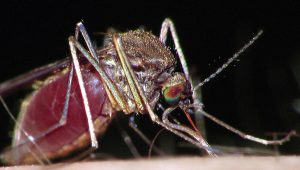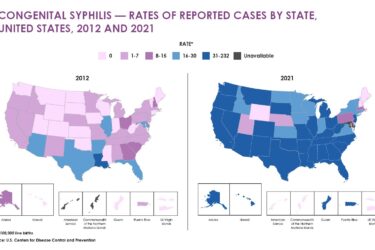
While the threat of mosquito-borne diseases in the U.S. has mostly faded since the Zika outbreak in 2016, Timothy Winegard warns that another one is probably around the corner, if history is any guide.
Winegard, a history professor at Colorado Mesa University, published an extensive history of the mosquito’s enduring and broad impact on the shape of geopolitics around the world, which demonstrates that the animal remains a threat to humanity.

“The American public should be concerned about mosquito-borne disease,” said Winegard, whose book “The Mosquito: A Human History of Our Deadliest Predator,” was published this summer. “It is easy to forget that we are only one animal on the planet and that we aren’t the masters of the universe. Global warming, deforestation, agriculture, trade, travel, and migration are all … factors resulting in an increase in certain mosquito-borne diseases.”
One emerging disease on the rise this summer is the Eastern equine encephalitis (EEE) virus, which is found in the northeast of the U.S, the Great Lakes and the Gulf Coast and is transmitted by the Culex and Culiseta melanura mosquitoes. Seven states have reported 28 cases of EEE this year, with 10 of the cases in Massachusetts and eight in Michigan and nine people have died. The case count is the highest since 1964, which is when the disease was required to be reported to the Centers for Disease Control and Prevention, according to Stat’s Helen Branswell.
For those that are infected with the disease, most experience a mild, flu-like illness, but about 20% develop a clinical illness that leads to the virus entering the brain, triggering encephalitis. Encephalitis is an inflammation of the brain. The death rate, of about 30%, is high – the highest of the mosquito-borne diseases transmitted in the U.S., Marc Fisher, a medical epidemiologist with the CDC, told Stat.
Climatic conditions likely play a role in its spread, as a milder winter can allow for the mosquito carrying the EEE to reproduce faster, according to Scott Weaver, an expert in mosquito-borne diseases at the University of Texas Medical Branch in Galveston.
“It’s a devastating disease,” Weaver told Stat news.
There is no vaccine currently for EEE because so few people contract it, and therefore no market for a pharmaceutical company to spend the money to develop one.
Whether EEE will become something that is history altering, time will tell, but journalists should remain vigilant, Winegard says. His book lays out how mosquitoes, throughout history, repeatedly changed the course of wars, and civilization’s development and until the mid-1950’s, when there was mass mosquito-spraying campaigns, the mosquito had the upper hand.
“Historically, there are Malthusian checks that come along to deflate our science-driven hubris,” Winegard said in an interview for a “How I Did It” piece. “If we look at the history, in our war with the mosquito, we have been losing since the dawn of humanity.”
To read the interview with Winegard, click here.








